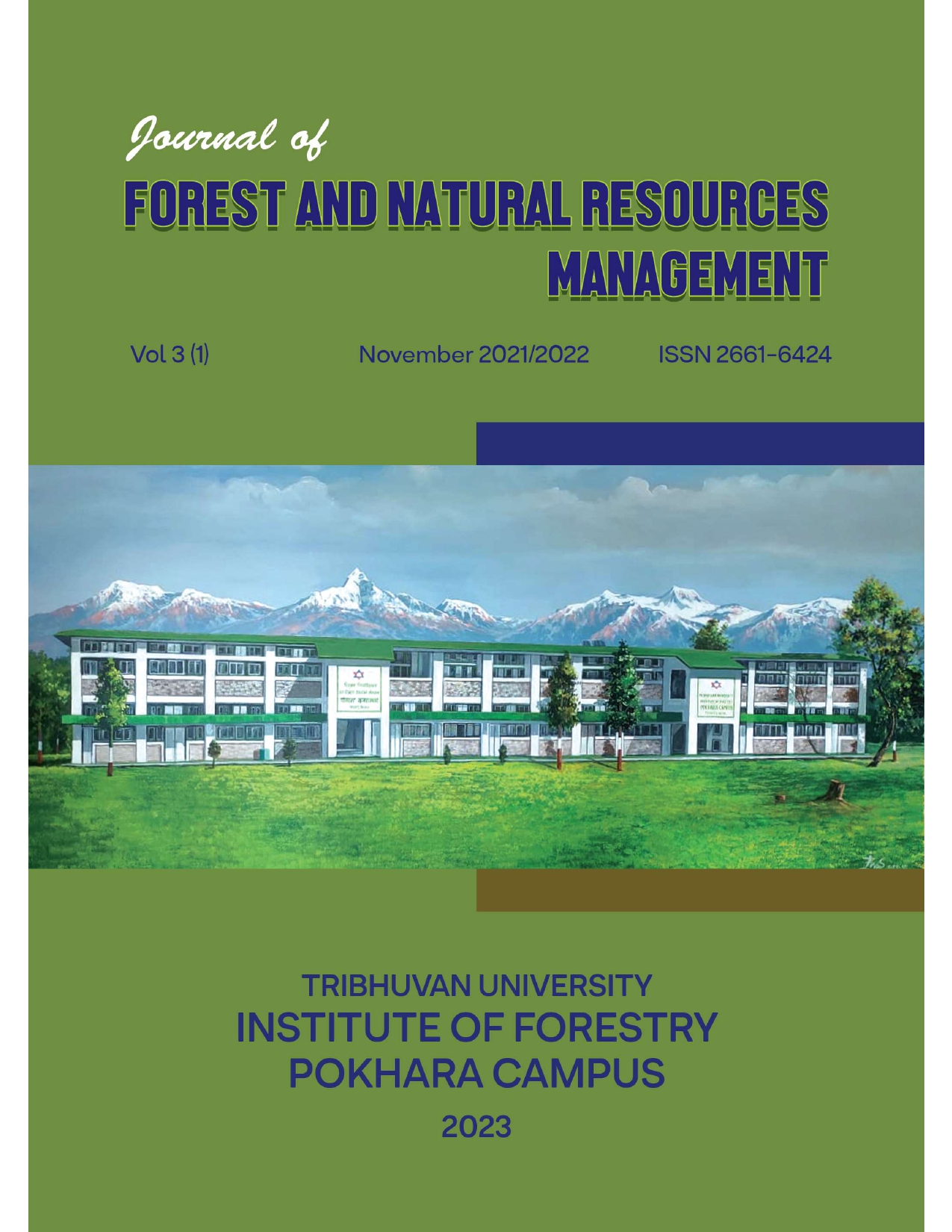Who decides and how? Understanding the initiation and implementation dynamics of scientific forestry in community forests in the mid hills of Nepal
DOI:
https://doi.org/10.3126/jfnrm.v3i1.60106Keywords:
Capacity building, Kaski, scientific forest management, silviculture, user groupsAbstract
Scientific forest management (SciFM) was in the initial phase of its implementation and practice in Nepal. However, it is discontinued due to the conflicting opinions among the forestry stakeholders. This study investigated the SciFM plan preparation process, and the involvement of different stakeholders in the planning, implementation, and capacity enhancement of community forest user groups (CFUGs) in two community forests of the Kaski District, Nepal. For this, we used a household survey (n = 101), key-informant interview (n = 15), and focus group discussion (n = 3). The study found that forest technicians were dominant over users during the SciFM plan preparation process as well as in decision-making. While in the case of implementation, it was CFUGs, who play a leading role to accomplish most of the activities. During the plan implementation, the higher percentage of involvement of users was in thinning, pruning and weeding activity (50%), followed by social development (20%) and timber-related activities (20%). However, the majority of the respondent considered that SciFM was highly technical and 90% of the respondents could not implement the plan. The forest authority (DFO), the executive committee, and the Federation of Community Forestry Users Nepal (FECOFUN) were involved in the capacity building of the users to some extent during the planning and implementation of SciFM. The results of this study could be the baseline information for the successful planning and implementation of silviculture-based forest management in other parts of the country
Downloads
Downloads
Published
How to Cite
Issue
Section
License
© Institute of Forestry, Pokhara Campus




